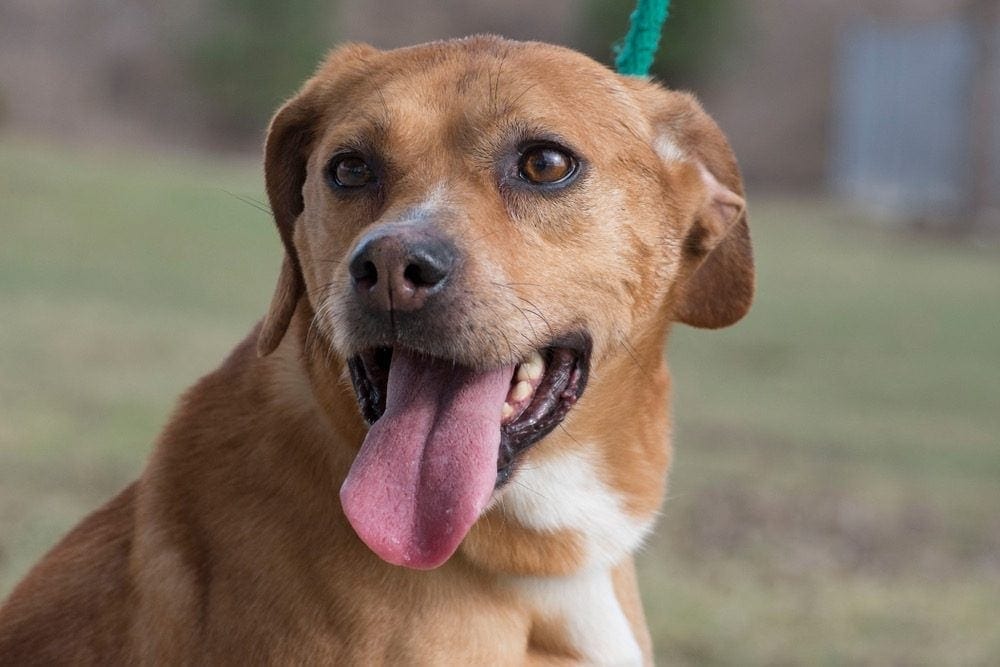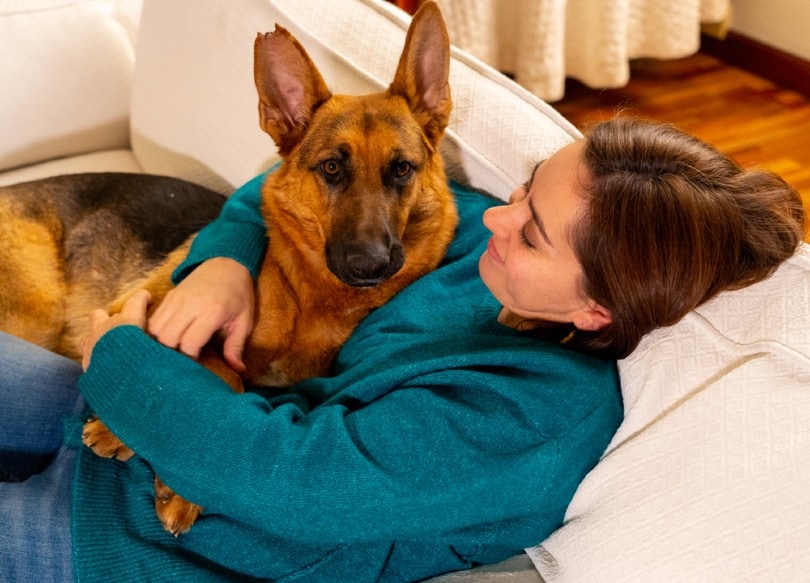Yorkie Growth & Weight Chart: Puppy to Adult (With Pictures)
Updated on
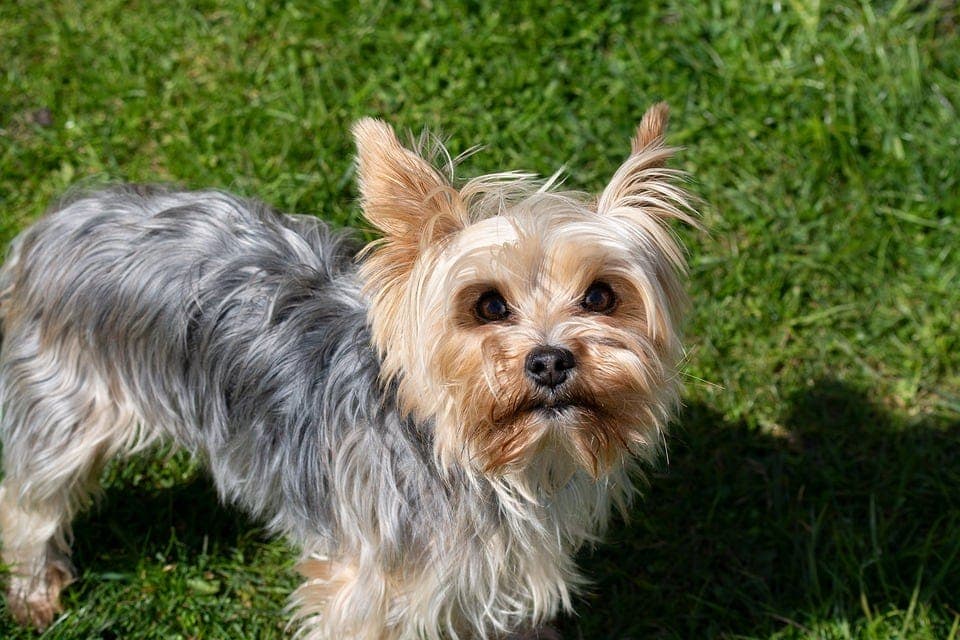
Yorkies are wonderful dogs, but no one will ever accuse them of being big pups. These are tiny dogs, suitable for living in your lap or riding around in your purse.
Even so, many Yorkie owners inevitably find themselves wondering if their pup is normal in terms of size. It’s understandable, as an overgrown Yorkie can be prone to health problems, while an undersized one may be malnourished.
With that in mind, we’ve prepared a guide that lets you know just how big do Yorkies get, along with how big Yorkies should be at various points of their development. There are always outliers, of course, so don’t use this in place of a vet’s advice, but it should be useful as a broad guideline.
Yorkie Breed Overview

Yorkies are one of the smallest dog breeds on the planet, only tipping the scales at 3–7 pounds when fully grown. As a result, you may not see much change in their size from week to week or even month to month.
If anything, these charts may be more useful as indicators of whether your Yorkie is getting too big. Many people spoil these dogs, and they can often become overweight as a result. This is terrible for their health, so use the data below to make sure you’re not overfeeding your pup.
Also, keep in mind that all this information is designed for purebred Yorkies. If you have a mix, that can skew the data significantly.
Yorkie Puppy Growth and Weight Chart
All the information below is a general estimate of where the average Yorkie will be at different stages of their development. As with humans, some Yorkies develop at different rates, and yours may be bigger or smaller than average at various points.
Therefore, you shouldn’t panic if your dog’s size doesn’t correspond with the chart below in a single time window. Instead, track their growth over several weeks or months, and only start to become concerned if there’s a consistent pattern of being too big or small.
Another important thing to realize is that one of the biggest factors affecting your dog’s growth will be their birth weight. If they were huge at birth, they’ll likely be bigger at every stage of development before ultimately becoming large adults. The opposite is true for very small newborns.
Yorkie Puppy Growth and Weight Chart (Male)
| Weight Range | Height Range | |
| 8 weeks | 21.5 oz. | 2–4 in. |
| 9 weeks | 23 oz. | 2–4 in. |
| 10 weeks | 25 oz. | 2–5 in. |
| 11 weeks | 28 oz. | 3–5 in. |
| 3 months | 32 oz. | 3–6 in. |
| 4 months | 40 oz. | 4–7 in. |
| 5 months | 46 oz. | 4–8 in. |
| 6 months | 51 oz. | 5–9 in. |
| 7 months | 55 oz. | 6–9 in. |
| 8 months | 58 oz. | 7–9 in. |
| 1 year | 64 oz. | 7–9 in. |
| 2 years | 64 oz. | 7–9 in. |
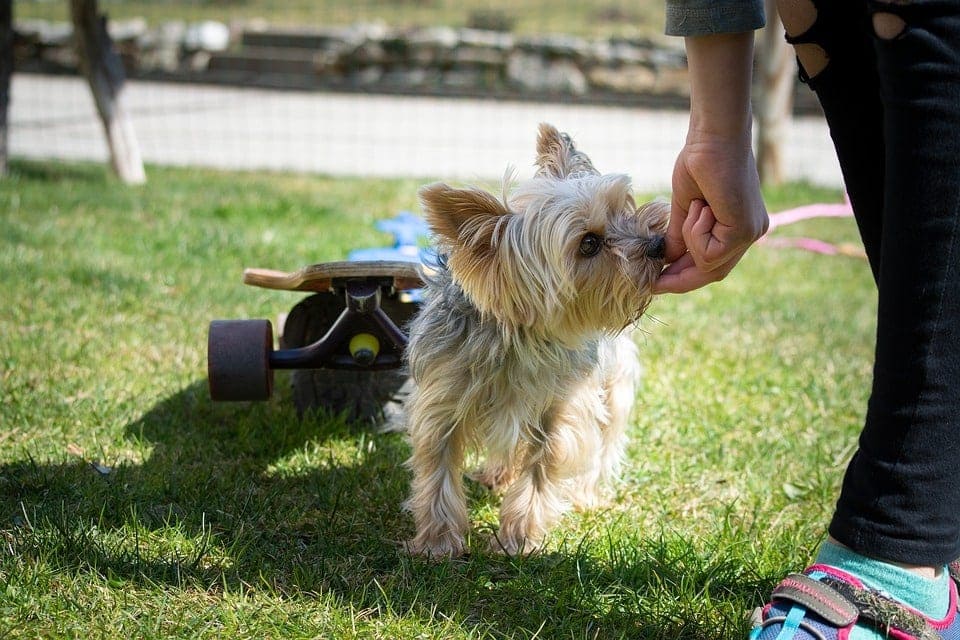
Yorkie Puppy Growth and Weight Chart (Female)
| Weight Range | Height Range | |
| 8 weeks | 21.5 oz | 2–4 in. |
| 9 weeks | 23 oz. | 2–4 in. |
| 10 weeks | 25 oz. | 2–5 in. |
| 11 weeks | 28 oz. | 3–5 in. |
| 3 months | 32 oz. | 3–6 in. |
| 4 months | 40 oz. | 4–7 in. |
| 5 months | 46 oz. | 4–8 in. |
| 6 months | 51 oz. | 5–9 in. |
| 7 months | 55 oz. | 6–9 in. |
| 8 months | 58 oz. | 7–9 in. |
| 1 year | 64 oz. | 7–9 in. |
| 2 years | 64 oz. | 7–9 in. |
You need to take good care of your pet while they are growing, so you can use our calculator tool to help you know how much to feed your pup and keep their well-being:
The exact amount of calories an individual animal needs to maintain a healthy weight is variable and influenced by many factors including genetics, age, breed, and activity level. This tool is meant to be used only as a guideline for healthy individuals and does not substitute veterinary advice
Yorkie Growth Stages
Like most small-breed dogs, Yorkies mature faster than their larger counterparts. That means you shouldn’t compare them to, say, your neighbor’s Great Dane; however, if you do, you’ll likely notice that your dog goes through a few stages of growth more rapidly.
Below, we explain what you should look for at each stage, including major milestones, necessary vaccines, and how much your dog should be eating.
8-week-old (2 months) Yorkie

At 8 weeks, your Yorkie is ready to be weaned from their mother (this is also the week that you get to bring your new buddy home if you’re adopting or buying from a breeder).
They should be eating an appropriate puppy kibble at this point, and you can let them free-feed. Just set a bowl of food out for them, and replenish it as necessary. Your dog is growing rapidly and needs all the calories that they can get.
Your puppy should get their first shots at this point, as they need boosters for parvo and distemper.
12-week-old (3 months) Yorkie

Once your Yorkie is 3 months old, you should stop free-feeding them and instead give them portion-controlled meals three times per day. How much you feed them will depend on the food and their size, but in general, they should receive between ¼ and ½ a cup of food per day.
Your dog will need another round of parvo and distemper shots, and they should also receive a complete checkup at this point (including a stool sample).
By this point, they should be acclimated to your home (assuming that you brought them home at 8 weeks). You can also begin housetraining them and teaching them to walk on a leash.
6-month-old Yorkie
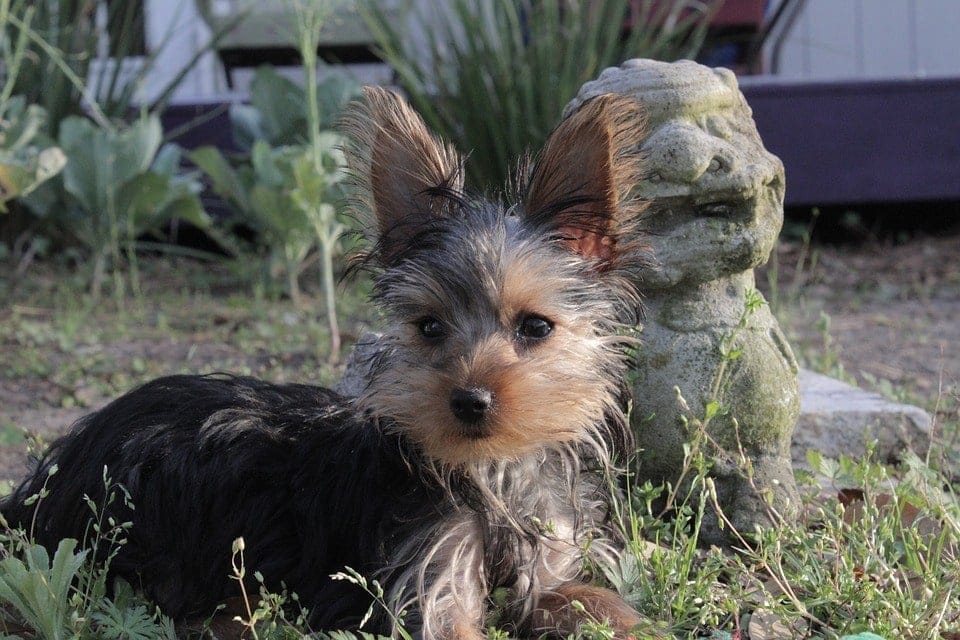
At 6 months old, your Yorkie should be their final color. They’ll also be close to their final size, although some Yorkies keep growing until they’re a year old.
If your pup has put on enough weight, you can likely start feeding them only two meals per day. You can keep the total amount of food the same or drop it down a bit, depending on the advice of your vet.
It’s important to pay attention to your dog’s bite at this stage as well, as it’s not uncommon for their jaws to suddenly become misaligned around 5 or 6 months old.
They should have a rabies vaccination at this time, and they’re also old enough to start learning more advanced obedience techniques. This is also when they reach sexual maturity, so you should have your dog spayed or neutered if you’re not planning to breed them.
12-month-old (1 year) Yorkie

At 12 months, your Yorkie is now officially an adult. With your Yorkie at full-grown size, you can commemorate the occasion by switching them (slowly) to an adult dog food. Continue feeding them ¼ to ½ cups of food daily in two servings, unless otherwise advised by your vet.
They’ll need a round of boosters at this stage, including rabies, DHPP, coronavirus, leptospirosis, Bordetella, and Lyme disease. They should also be on flea and tick medication and a heartworm pill.
You can do just about anything with a 12-month-old Yorkie, including putting them through advanced training classes and long grooming sessions. They’ll stay an adult until they turn 8 or so, at which point they’ll be considered a senior dog.
When Do Yorkies Stop Growing?
Yorkies grow quickly (although they don’t grow very much). Many Yorkies stop growing and are fully mature by the time they’re 6 or 8 months old, although some take until they turn a year old to reach physical maturity. As a general rule, though, if your Yorkie is still adding weight after they’ve turned 1, it’s time for a diet.
They also mature quickly from a mental standpoint. You can start training a Yorkie earlier than you would a larger-breed dog, and they’ll have the attention span and intelligence to handle advanced techniques by the time they’re 6 months old.
The flip side to this is that they lose their “puppy-ness” sooner than other dogs, but even adult Yorkies are still fairly puppy-like.
How Does Neutering/Spaying Affect My Dog’s Growth?
Since Yorkies mature so quickly, spaying or neutering them has little effect on their growth. By the time they’re old enough for the procedure, they’ll likely be close to their final size.
However, allowing your female Yorkie to become pregnant before they’re fully mature can stunt their growth a bit, as the nutrients that they need to continue growing will go to their puppies instead. If you’re planning on breeding your dog, we’d recommend waiting until they’re fully mature to do so.
Dangers of Growing Too Quickly or Stunted Growth
It’s very rare for a Yorkie to grow too quickly or have their growth stunted. Keep in mind that you’ll find quite a few variations in size within the breed, so see if your vet says that you should be concerned.
If your Yorkie is packing on extra weight, though, you should decrease their caloric consumption and increase their exercise levels. Being overweight can lead to a host of different health conditions, including diabetes, heart disease, and joint problems.
However, if your dog isn’t putting on any weight at all, you should take them in for a checkup. This is often a sign of an intestinal parasite, so the vet will likely want to take a stool sample to be sure.
If your Yorkie is way off the growth chart in both height and weight, it may indicate that they’re not purebred. Yorkie mixes can weigh 15 pounds or more, but it’s extremely rare for a purebred Yorkie to get anywhere near that big. If you bought your dog from a breeder, you might want to start asking questions.

Conclusion
Yorkies are wonderful dogs, and raising them as puppies can be both fun and challenging. Ideally, you’ll want your dog to grow slowly and steadily, but that’s not always possible with this breed.
Don’t be alarmed by sudden growth spurts, and don’t be concerned if your dog stops growing at 6 or 8 months. These dogs mature quickly, and their puppyhood fades fast.
As long as your Yorkie isn’t too much of an outlier (and as long as your vet isn’t concerned with their growth), you have nothing to worry about. So, sit back, relax, and enjoy watching your new Yorkie grow to full size and explore the world.
Featured Image Credit: Pezibear, Pixabay





